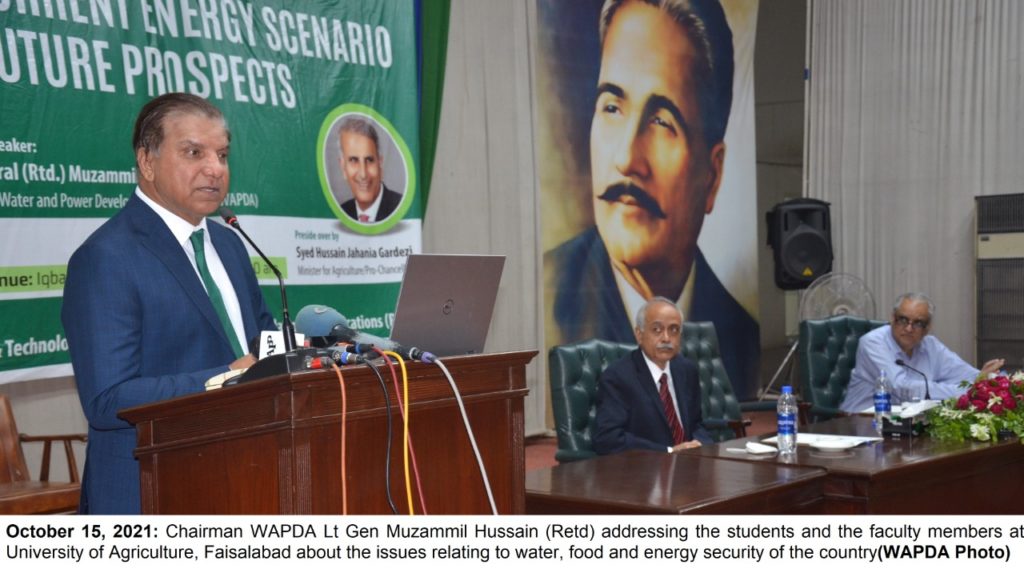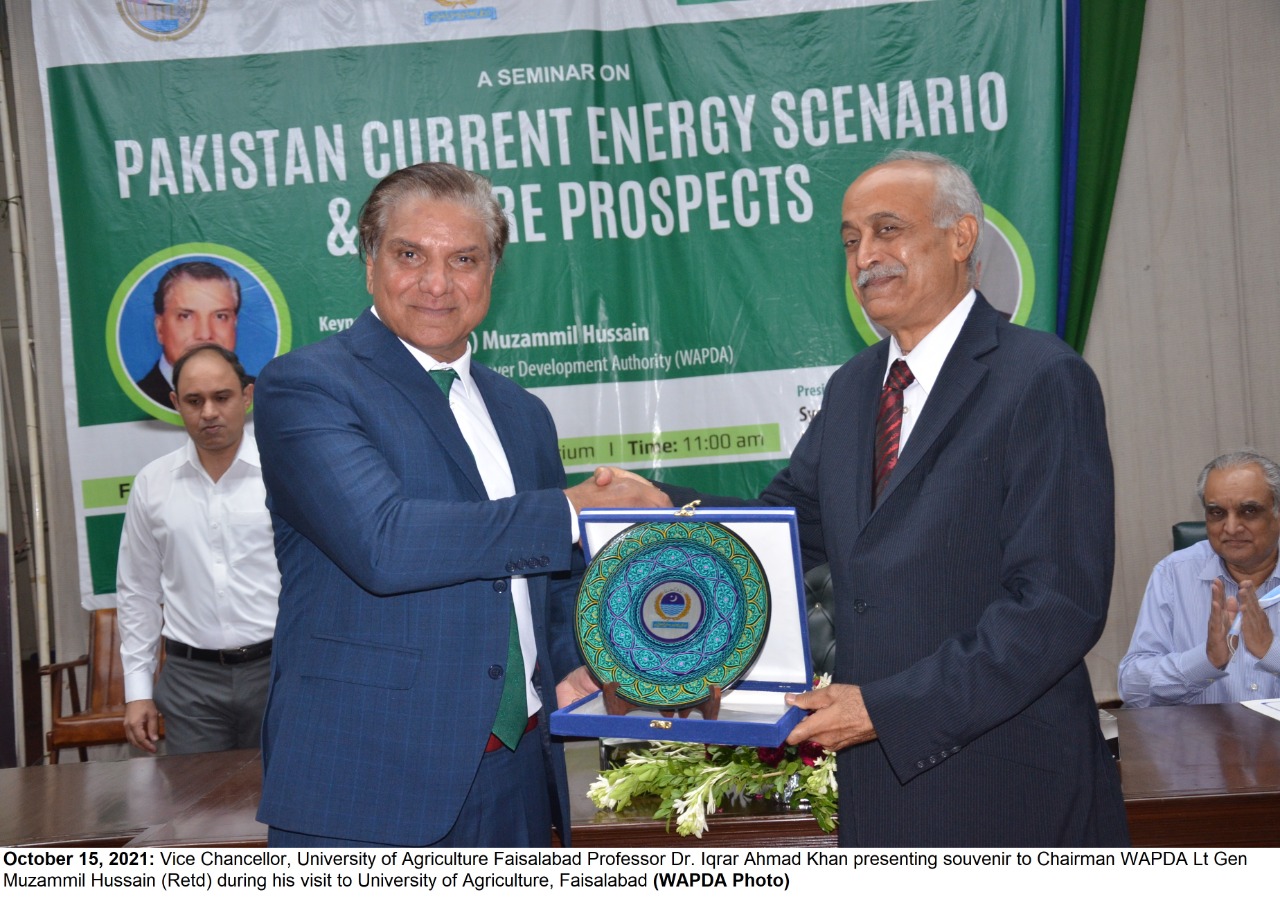Pakistan Water and Power Development Authority (WAPDA) is committed to the water, food and energy security of the country. At present, it has been constructing as many as 10 projects in water and hydropower sectors under ‘Decade of Dams’, to be completed in a phased manner from 2023 to 2029.
Chairman WAPDA Lt Gen Muzammil Hussain (Retd) expressed these views while addressing the students and the faculty members at University of Agriculture, Faisalabad.

The Chairman said that WAPDA has been tremendously contributing as a vibrant organization towards national development by harnessing the vital resource of water. The under construction WAPDA projects include five dams, three hydropower projects, one canal and one water supply scheme. Diamer Basha Dam, Mohmand Dam, Dasu Hydropower Project, Nai Gaj Dam, Kachhi Canal Extension, Sindh Barrage and K-IV Project are to name a few. With completion of 10 under construction WAPDA projects, the gross water storage capacity in Pakistan will increase from 13 million acre feet (MAF) to more than 24 MAF with an addition of 11.7 MAF, sufficient to irrigate another 1.6 Million Acres of land. In addition, 950 million gallons water per day would also be made available for drinking purpose to Karachi and Peshawar. The installed hydel generation capacity will be doubled to cross 18000 MW with an addition of 9000 MW on completion of these projects. The under construction WAPDA projects will also provide about 35,000 job opportunities during the construction, he further said.
Dilating upon the grim water scenario, Chairman WAPDA said the per capita water availability in Pakistan has come down from 5650 cubic meter in 1951 to an alarming level of 908 cubic meter per annum, pushing us to the stage of water-scarce country. Pakistan can store only 10 percent of its annual river flows against the world average of 40 percent. Ironically, instead of increasing water storage capacity, Pakistan has lost about one-fourth storage of the dams. The live water storage capacity that used to be 16.26 MAF in 1976 has reduced to 13.68 MAF, which equals to only 30 days carry over capacity. India has carry over capacity of 170 days, Egypt 700 days and America 900 days. The carry over water storage capacity has to be increased from 30 days to 120 days. In order to tackle the impending water scarcity, we need to have more water storages besides practicing good water conservation and management strategies, the Chairman said.
Earlier, Vice Chancellor, University of Agriculture Faisalabad Professor Dr. Iqrar Ahmad Khan welcomed the Chairman WAPDA and briefed him about the contribution, the university has been made for development of agriculture in Pakistan. He also informed the Chairman about adoption of innovative technologies in academics and on-farm sides.
Later, the Chairman WAPDA visited Main Library of the university to witness the World Mango Encyclopedia. He also visited Faculty of Agri-Engineering & Technology, Labs and Engineering Workshop.







